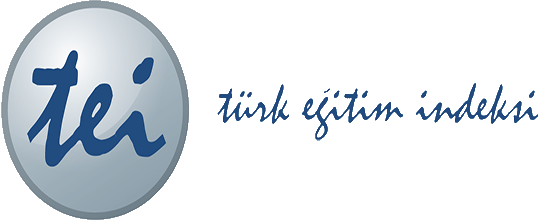ОСОБЛИВОСТІ ПРАВОВОЇ ПОЛІТИКИ У СФЕРІ ЕЛЕКТРОННОГО УРЯДУВАННЯ В КОНТЕКСТІ ДОСЯГНЕННЯ ЦІЛЕЙ СТАЛОГО РОЗВИТКУ
DOI:
https://doi.org/10.32689/2617-9660-2023-3(27)-8-14Ключові слова:
електронне урядування, правова політика, адміністративно-правова політика, цифрові інструменти, Цілі сталого розвитку, цифровізація, інформаційна безпека, захист інформації, кібербезпека, публічно-управлінська діяльністьАнотація
Стаття присвячена аналізу правової політики у сфері електронного урядування щодо її відповідності реалізації цілей сталого розвитку та глобальної стратегії розвитку сучасного глобалізованого суспільства. Визначено, що кожна із країн, що взяла на себе зобов’язання щодо досягнення глобальних цілей сталого розвитку до 2030 року, в тому числі і Україна повинна формувати свою політику у сфері електронного урядування таким чином, щоб вона відповідала національним пріоритетам розвитку та досягненню Цілей сталого розвитку. Закцентовано увагу на поступальному розвитку електронного урядування у світі, свідченням чого є зростання Індексу розвитку електронного урядування для більшості країн. Доведено, що адміністративно-правова політика України у сфері електронного урядування спрямована на ефективну реалізацію Цілей сталого розвитку України на період до 2030 року, що затвердженої Указом Президента № 722/2019 від 30 вересня 2019 року. Індекс розвитку електронного урядування свідчить про успішні напрямки розвитку цієї сфери. Виокремлено проблеми, які мають місце в національних практиках більшості країн звіту щодо впровадження цифрових інструментів в систему публічного управління, серед яких: нерівномірність впровадження електронного урядування, розрив в доступі до новітніх технологій в містах та селах, володіння цифровими навичками, необхідними для використання переваг електронного урядування серед населення, побудова відповідної цифрової інфраструктури цифрового врядування, забезпечення інформаційної безпеки та власне законодавче забезпечення впровадження електронного урядування в різні сфери суспільного життя та врешті – реалізація цифрових прав громадян. В той же час існують і виклики щодо впровадження електронного урядування в різноманітні сфери суспільного життя, зокрема ООН виділяє наступні: глобальне підключення до мережі Інтернет; цифрові суспільні блага; цифрове включення; розбудова цифрового потенціалу; штучний інтелект; цифрова довіра та безпека; глобальне цифрове співробітництво.
Посилання
United Nations, General Assembly, “Road map for digital cooperation: implementation of the recommendations of the High-level Panel on Digital Cooperation”, report of the Secretary-General (A/74/81), 29 May 2020, URL: https://www.un.org/en/content/digital-cooperation-roadmap/.
United Nations, Our Common Agenda: Report of the Secretary-General (Sales № E.21.I.8), para. 92, URL: https://www.un.org/en/content/common-agendareport/assets/pdf/Common_Agenda_Report_English.pdf.
United Nations Conference on Trade and Development, Digital Economy Report 2019–Value Creation and Capture: Implications for Developing Countries (Sales № E.19.II.D.17), p. xv, URL: https://unctad.org/webflyer/digitaleconomyreport-2019.
United Nations, “Don’t let the digital divide become ‘the new face of inequality’: UN deputy chief”, UN News, 27 April 21, URL: https://news.un.org/en/story/2021/04/1090712.
Про Цілі сталого розвитку України на період до 2030 року: Указ Президента України від 30 вересня 2019 року № 722/2019 URL: https://zakon.rada.gov.ua/laws/show/722/2019#Text
United Nations, “Secretary-General’s Nelson Mandela lecture: ‘Tackling the inequality pandemic: a new social contract for a new era’ [as delivered]”, 18 July 2020, URL: https://www.un.org/sg/en/content/sg/statement/2020-07-18/secretary-generalsnelson-mandela-lecture-%E2%80%9Ctackling-theinequality-pandemic-new-social-contract-fornewera%E2%80%9D-delivered
Jared Spataro, “2 years of digital transformation in 2 months”, Microsoft 365, 30 April 2020, URL: https:// www.microsoft.com/en-us/microsoft-365/blog/2020/04/30/2-years-digital-transformation-2-months/.
Australia, NSW [New South Wales] Government, Education website, URL: https://education.nsw.gov.au.
Spain, La Moncloa, “Government sets up Hispabot-Covid19, a channel for enquiries about COVID-19 through WhatsApp”, news article, 8 April 2020, URL: https://www.lamoncloa.gob.es/lang/en/gobierno/news/ Paginas/2020/20200408covid-assistance.aspx.
Organization for Economic Cooperation and Development, “3. DI in Chile”, Digital government in Chile–digital identity (OECDiLibrary, 2019), URL: https://www.oecd-ilibrary.org/sites/0e312f24-en/index.html?itemId=/ content/component/0e312f24-en.
Organization for Economic Cooperation and Development and others, Embracing Innovation in Government: Global Trends 2020, available for download as five separate reports at URL: https://trends.oecd-opsi.org.
Appen, The 2021 State of AI and Machine Learning Report, URL: https://appen.com/whitepapers/thestate-ofai-and-machine-learning-report/.










